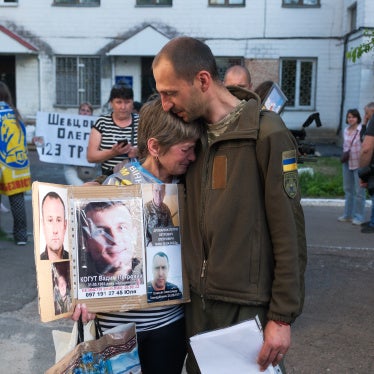It was a shipwreck in Mediterranean waters so ghastly that even a Europe inured to the drowning of migrants and asylum seekers was compelled to act. Two months ago, a boat sank off the coast of Lampedusa, taking the lives of 366 people and put dangerous boat migration squarely on the European Union’s (EU) agenda.
But the response is disappointing. Today, the European Commission published the report and policy proposals of Task Force Mediterranean, created after that disaster. While the report stresses respect for international human rights, it is more focused on securing borders than on saving lives.
There is little new or meaningful to ensure that migrants and asylum seekers risking the dangerous sea crossing will be quickly rescued and disembarked in a safe EU port.
The report makes much of Eurosur, the new border surveillance system inaugurated two days ago. Eurosur is a platform for information exchange with the primary goal of detecting and preventing irregular migration. More information about overcrowded migrant boats in the Mediterranean will help save lives only if all member states are held to clear, binding guidelines about who must respond to situations of real or potential distress emphasizing that the paramount duty is to rescue rather than enforce sea borders. But that hasn’t happened yet.
As of spring 2014, the report states, the EU’s border agency Frontex should be in a position to ensure border surveillance in the Mediterranean from Cyprus to Spain. But member states still cannot agree on proposed new Frontex regulations that, while far from perfect, would clarify the agency’s role in search and rescue operations, broaden the definition of distress, and establish binding rules about where rescued migrants should be taken.
The report contains some positive forward-looking proposals, including increasing refugee resettlement in EU countries, creating avenues for “protected entry” into the EU for asylum seekers, and opening more channels for legal migration. In the long-term, these are the kinds of measures that can help avoid people taking the dangerous sea journeys. Let’s hope the EU has the political will to adopt and implement them. In the short-term, though, it has to do much more to helpthose who make the crossing reach safe, dry land.






